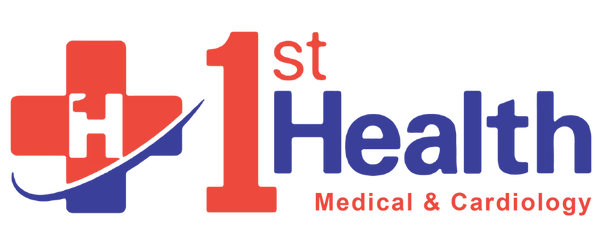Hypertension Lifestyle Modifications: Taking Control of Your Heart Health

Hypertension Lifestyle Modifications
High blood pressure, also known as hypertension, is a serious health condition affecting millions of people worldwide. It significantly increases the risk of heart disease, stroke, kidney failure, and other health complications. While medication plays a crucial role in managing hypertension, hypertension lifestyle modifications can be equally impactful in controlling your blood pressure and improving your overall health.
This comprehensive guide explores the power of lifestyle changes in managing hypertension. We’ll delve into the three key pillars of a heart-healthy lifestyle: diet, exercise, and weight management. By understanding how these modifications influence your blood pressure, you can actively participate in your health journey.
Diet and Hypertension
Dietary choices have a profound impact on your blood pressure. Here’s how specific dietary adjustments can help:
- Embrace the DASH Diet: The Dietary Approaches to Stop Hypertension (DASH) diet is scientifically proven to lower blood pressure. It emphasizes fruits, vegetables, whole grains, and low-fat dairy products. These foods are rich in essential nutrients like potassium, magnesium, calcium, and fiber, all of which contribute to healthy blood pressure regulation.
- Reduce Sodium Intake: Sodium is a major culprit in raising blood pressure. Limiting your daily sodium intake to less than 2,300 milligrams (ideally 1,500mg for those with hypertension) is crucial. This involves being mindful of processed foods, canned goods, and restaurant meals, which are often loaded with sodium. Read food labels carefully and opt for low-sodium alternatives whenever possible. Seasoning with herbs and spices instead of salt can add flavor without the sodium spike.
- Limit Saturated and Trans Fats: Saturated and trans fats can contribute to unhealthy cholesterol levels and indirectly impact blood pressure. Choose lean protein sources like fish, poultry, and beans instead of red meat. Opt for healthy fats from sources like olive oil, avocados, and nuts.
- Moderate Alcohol Consumption: Excessive alcohol consumption can raise blood pressure. Aim for moderation: no more than one drink per day for women and two drinks per day for men.
- Reduce Added Sugars: Added sugars contribute to weight gain and inflammation, both of which can worsen hypertension. Limit sugary drinks, processed snacks, and sweets.
Remember: Consistency is key. Gradually incorporating these dietary changes into your lifestyle will yield long-term benefits for your blood pressure control.
Exercise and Hypertension
Regular physical activity is a potent weapon against hypertension. Here’s why:
- Lowers Blood Pressure: Engaging in regular aerobic exercise, such as brisk walking, swimming, cycling, or dancing, helps your heart pump blood more efficiently, naturally lowering your blood pressure. Aim for at least 150 minutes of moderate-intensity exercise or 75 minutes of vigorous-intensity exercise per week.
- Reduces Stress: Stress hormones can elevate blood pressure. Exercise is a fantastic stress reliever. Physical activity promotes the release of endorphins, which have mood-boosting and stress-reducing effects.
- Aids in Weight Management: Exercise, combined with a healthy diet, helps manage weight. Even modest weight loss can significantly improve blood pressure control.
Finding activities you enjoy is essential for long-term adherence. Start slowly and gradually increase the intensity and duration of your workouts as your fitness level improves. Consult with your doctor before starting a new exercise program, especially if you have any underlying health conditions.
Weight Management and Hypertension
Maintaining a healthy weight is crucial for blood pressure control. Here’s the connection:
- Excess weight puts a strain on your heart. As your weight increases, your heart needs to work harder to circulate blood throughout your body, leading to elevated blood pressure.
- Losing weight, even a modest amount (5-10% of body weight), can significantly lower blood pressure.
Focus on healthy, sustainable weight loss through a combination of a balanced diet and regular exercise. Crash diets or extreme calorie restriction are not sustainable and may be detrimental to your health.
Combining Lifestyle Modifications for Optimal Results
These lifestyle modifications have a synergistic effect when combined. A healthy diet fuels your body for exercise, while exercise helps manage weight and improve the effectiveness of a healthy diet. These changes, implemented together, create a powerful force for lowering your blood pressure and improving your cardiovascular health.
Remember: It’s important to discuss any lifestyle changes with your doctor. They can help you set realistic goals, tailor these modifications to your individual needs, and monitor your progress.
Taking Charge of Your Heart Health with 1st Health Medical & Cardiology
Hypertension is a manageable condition. By embracing these hypertension lifestyle modifications, you can actively participate in controlling your blood pressure and reducing your risk of future complications.
1st Health Medical & Cardiology is dedicated to empowering our patients to take charge of their heart health. Our team of experienced cardiologists and staff are ready to help you craft a personalized hypertension lifestyle management plan.
Schedule an appointment today.
